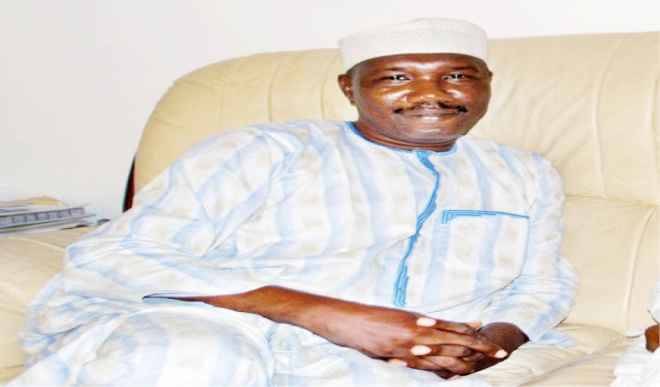‘How N5 transistor radio pushed me into journalism’
Was journalism your dream profession? I did not join the world of journalism. I was born into it. My grandfather belonged to a family of letters in Arabic literature and Islamic studies. He wrote many Qur’anic texts and Arabic scripts in Fulfulde called ajami. My father did the same in Arabic, English, Hausa and Fulfulde […]


Was journalism your dream profession?
I did not join the world of journalism. I was born into it. My grandfather belonged to a family of letters in Arabic literature and Islamic studies. He wrote many Qur’anic texts and Arabic scripts in Fulfulde called ajami. My father did the same in Arabic, English, Hausa and Fulfulde languages. By the time I started my western education, my father had started a career in information service at Foreign Broadcast Information Service (FBIS). He was a senior information officer at the Federal Ministry of Information, Lagos. In the mid-1970s, he became the Principal Information Officer and Head of Press and Public Relations and later was put in charge of public enlightenment. Therefore, by the age of 10, I was reading all the newspapers, international magazines and agency reports he brought home.
The turn-around I got that took me to the road of journalism was in 1975. My father went for a study course at University of Pittsburg, Pennsylvania, USA. On his return, he showed us pictures of his brief stay at the United States and his life in the university there. After the display, he found the adaptor to the power source was hot and challenged us to hold it for ten seconds for a reward of N5. I took the challenge and collected the money. The following day, I bought a transistor radio and that changed my life. I stayed up late every night and listened to music, programmes and news. I do that every other night to this day. Already, I was acquainted to newspapers, wire reports and magazines. After the hobby of watching television, now radio came into my life.
How do you compare challenges at the early part of your career and what reporters are facing today?
I started my journalism career at The Democrat newspapers as a reporter at the head office in Kaduna on New Year’s Day in 1989. My editor was Abdulkarim Albashir and the deputy editor was Abba Kyari. My first challenge really was a matter of ethics in the profession. I had a nasty experience after my first assignment when my colleagues from other media houses nearly lynched me thinking I was a fake journalist. I refused to cover any event again but stayed in the newsroom for the next few months up until when my editor told me to go and open an office for Gongola State and run it as a correspondent.
My first assignment was covering the crisis that engulfed Madagali/Michilka axis after the creation of local government areas and Madagali was not mentioned. As a green horn, I followed the FRCN Kaduna correspondent, Yelwa Garvey to interview the police area commander, Hamman Misau. When we came back to base, sending the report was like squeezing water out of rock. Even as a routine, you turned the dial of the telephone continuously for an hour or more to connect with the head office. Your editor summoned a staff to take your dictation, which took at least 30 to 40 minutes. To make matter worse, the connection could cut off unexpectedly and the circle began all over.
The present day reporter’s challenges are not found in the technology of information nor facilities. However, from my observation, concern should be focused on low pay, charlatans in the profession, political and monetary influences just to mention a few. Quality has dropped in some critical aspects of media work replaced by mediocrity.
As General Manager, Adamawa Press Limited during the military regime, was there interference from the then government?
I was appointed editor in 1994 and headed The Scope newspaper run by the Adamawa State Government. Two years later, I became first, sole administrator, and then general manager while still holding the office of editor. Working for an organ of the government was markedly different from a correspondent with a private print media. Even though personally I did not face any interference from the military rulers at that time but we did the self-regulation ourselves. We guided ourselves professionally on how not to fall out of line. Today, in my opinion, practicing in a civil democracy is more challenging than in a military regime. There are more formal and informal checks on the management and even the media practitioners due to political considerations.
How should the media best report the insurgency and herder/farmer clashes?
Assessing the role of the media in reporting insurgency and herders/farmers clashes will not be easy. First of all conflict reporting is a specialized area but editors do not have the staff properly trained to handle such stories. Moreover, such stories when not carefully handled trigger more crises and bloodshed. Secondly, the publishers and proprietors of media organs especially in the private sector do not consider the humanitarian effects of conflict reporting over political and financial factors.
